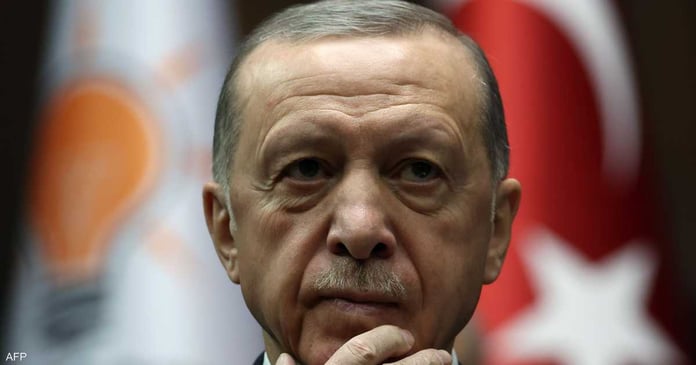After more than two decades, the Turkish president finds himself facing more serious circumstances, but facing a similar challenge: paying the price for the February 6 earthquake that killed more than fifty thousand people in the planned presidential and legislative elections. May 14.
Melih Yesilbagh, a sociology professor at Ankara University, said Erdogan and his conservative party “came to power with an earthquake, and another earthquake could topple them”.
He recalled that when the Justice and Development Party came to power in 2002, “one of its main promises was to modernize the infrastructure. Twenty years later, we see what is happening”.
The 1999 earthquake killed more than 17,000 people in the northwest of the country and revealed the fragility of buildings.
With the coming to power of Erdogan in 2003, he adopted a new economic model based on the real estate sector and large workshops, leading to a profound transformation of Turkey.
More than ten million houses have been built in twenty years in Turkey, and Yesilbag commented: “It’s an incredible number, more than half of what has been built in all the countries of the European Union put together during of the same period”.
Versatility in the real estate sector
“AKP’s original base is made up of small entrepreneurs and businessmen from Anatolia who have excelled in the sector and real estate transactions,” said Atilla Yesilada of Global Source Partners, a consultancy .
The real estate boom accelerated with the financial crisis of 2007-2008, which forced the United States and Europe to cut interest rates to zero, which was a source of wealth for Turkey.
With billions of dollars in interest-free loans, Erdogan’s government was able to give most cities a new face and connect the provinces to a network of highways and airports.
The construction boom also allowed less educated Turks to be connected to the labor market, thus strengthening the AKP’s electoral base.
“It worked very well for Turkey, generating a new prosperous class of AKP supporters who became urbanites and joined the middle and wealthy classes,” Atilla Yesilada pointed out.
forbidden relationship
Turkey’s economy experienced a great boom during the first decade of Erdogan’s rule, and the construction sector and the industries that led to its development accounted for around a third of this boom at the peak of growth. in 2013.
Osman Balaban, professor of urban planning at the Middle East Technical University in Ankara, said: “The construction sector is labor intensive and thus generates a large amount of short-term employment.
However, it didn’t last long.
With the outbreak of an acute diplomatic crisis with Washington and the administration of former President Donald Trump in 2018 and the initiation of a gradual increase in interest rates in the West, the Turkish lira collapsed, which which led to an increase in the cost of loan repayment. in dollars.
“The cost of construction has become very high,” said Melih Yeshilbagh.
Entrepreneurs continued to support Erdogan’s government in exchange for new projects.
“It turned into something like an incestuous relationship, as entrepreneurs felt compelled to support Erdogan’s re-election campaign,” he added.
But the returns have turned negative over the years.”
Breaking the social contract
The similarities between this year’s earthquake and economic crisis and the circumstances of 1999 are striking.
Inflation topped 85% in the fall, the highest level since 1998, after Erdogan cut interest rates in a bid to boost output.
With the collapse of the Turkish lira, Erdogan is counting on the support of the Gulf States.
Analysts believe that the social contract that binds him to his constituents has been broken.
However, they warn that Turkey’s extreme polarization could prevent opposition candidate Kemal Kilicdaroglu from winning the election.
Osman Balaban felt that “the severe damage resulting from the earthquake destroyed the image of prosperity that Erdogan and his party imposed”.
What offended this image the most was the collapse of many buildings built during Erdogan’s time in seconds when the earthquake struck, which revealed a lack of compliance with the standards of earthquake-resistant construction.
Balaban said it “could affect the elections, but I don’t know if it’s enough to bring down Erdogan.”
Read the Latest World News Today on The Eastern Herald.


